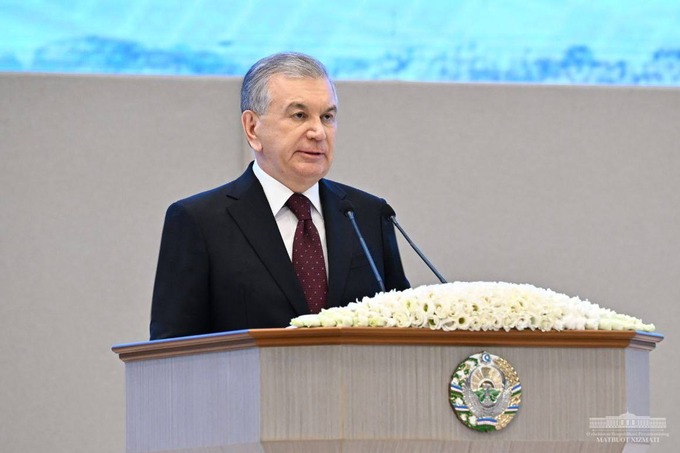President Shavkat Mirziyoyev held a meeting on May 28 to discuss priorities in ensuring a competitive environment in the economy and protecting consumer rights, the presidential press service said.
Shavkat Mirziyoyev emphasized that in the process of transition of Uzbekistan to a market economy, the competition is of fundamental importance.
“I am constantly worried about the question: are our enterprises able to withstand competition with external players? Can their products compete with their imported counterparts? If we manage to reduce the cost of our products and, accordingly, the final price, exterior entities themselves will buy it from us,” he said.
Today, 245 enterprises retain the status of a monopolist in the market of 31 groups of goods and 82 types of services. However, a competitive environment has already been formed in the market of 70 enterprises manufacturing 19 types of goods and services, which could be excluded from the list of monopolists, the press service said.
“If there is no competition - there will be no quality, prices will not go down. Times are evolving, however the monopoly enterprises are not, and we have different paths to follow. It's time to take tough decisions. For us, this is a matter of life and death of the economy. If the leaders meet the requirements, they will continue to work, if not, they will have to go,” the president emphasized.
In this regard, he set a task to review the approach to determining the monopoly position of enterprises in the market, approving a “road map” aimed at sharply cutting the number of goods manufactured by monopoly companies.
“We must study the world experience and build our own course. We must have a single vision regarding demonopolization, ensuring competition, protecting consumer rights,” said Shavkat Mirziyoyev.
He highlighted the importance of introducing a system of antitrust compliance at enterprises with a state share, holding training of managers on the basics of competition and compliance with the participation of the World Bank and the European Bank for Reconstruction and Development.
“When will we be ready for competition? When will our sectors and industries be ready for this? Sectors will be ready if there is personnel. Our most vulnerable spot is a lack of skilled labour, lack of standards. Therefore, we must build this work practically from the very beginning, the head of state noted.
He pointed to the need to create a completely new system for development of competition and counteraction to monopolies. He instructed to set up a university department offering competition development program, to establish full-time and part-time forms of education, to introduce new subjects and academic hours.
At the Higher School of Business and Entrepreneurship, he entrust to organizing short-term courses on the development of competition for heads of monopolist enterprises, governors and mayors, involving experts and professors from the international financial organizations in the educational process.
It is planned to establish refresher courses for judges at the Tashkent Law University in order to consider disputes in the field of competition, specialization of judges in this area and the organization of a separate judicial board.
It is expected that a draft decree will be developed on a radical improvement of the activities of the Antitrust Committee, based on the tasks set at the meeting. In addition, it was entrusted with considering the issue of establishing its accountability to the parliament.
The meeting also analyzed the work in the field of consumer protection.
“Much has been said about protecting consumer rights, but in practice there is no harmonious system. There is no environment for this, there is no relevant knowledge,” the president said.
Of the more than 11 thousand consumer complaints received by the Consumer Rights Protection Agency last year, 50% related to utilities and transport, 25% to trade, the remaining 25% to communications, financial services and others.
The main reason is that monopolistic enterprises operate according to internal acts that pursue their own interests rather than the interests of consumers, the press service of the head of state said.
Powers of the Agency for the Protection of Consumer Rights under the Antimonopoly are expected to be extended.













